第119章 At the Battle-Fronts in the Great War (1)
It was in the summer of 1918 that Edward Bok received from the British Government, through its department of public information, of which Lord Beaverbrook was the minister, an invitation to join a party of thirteen American editors to visit Great Britain and France.The British Government, not versed in publicity methods, was anxious that selected parties of American publicists should see, personally, what Great Britain had done, and was doing in the war; and it had decided to ask a few individuals to pay personal visits to its munition factories, its great aerodromes, its Great Fleet, which then lay in the Firth of Forth, and to the battle-fields.It was understood that no specific obligation rested upon any member of the party to write of what he saw: he was asked simply to observe and then, with discretion, use his observations for his own guidance and information in future writing.In fact, each member was explicitly told that much of what he would see could not be revealed either personally or in print.
The party embarked in August amid all the attendant secrecy of war conditions.The steamer was known only by a number, although later it turned out to be the White Star liner, Adriatic.Preceded by a powerful United States cruiser, flanked by destroyers, guided overhead by observation balloons, the Adriatic was found to be the first ship in a convoy of sixteen other ships with thirty thousand United States troops on board.
It was a veritable Armada that steamed out of lower New York harbor on that early August morning, headed straight into the rising sun.But it was a voyage of unpleasant war reminders, with life-savers carried every moment of the day, with every light out at night, with every window and door as if hermetically sealed so that the stuffy cabins deprived of sleep those accustomed to fresh air, with over sixty army men and civilians on watch at night, with life-drills each day, with lessons as to behavior in life-boats; and with a fleet of eighteen British destroyers meeting the convoy upon its approach to the Irish Coast after a thirteen days' voyage of constant anxiety.No one could say he travelled across the Atlantic Ocean in war days for pleasure, and no one did.
Once ashore, the party began a series of inspections of munition plants, ship-yards, aeroplane factories and of meetings with the different members of the English War Cabinet.Luncheons and dinners were the order of each day until broken by a journey to Edinburgh to see the amazing Great Fleet, with the addition of six of the foremost fighting machines of the United States Navy, all straining like dogs at leash, awaiting an expected dash from the bottled-up German fleet.It was a formidable sight, perhaps never equalled: those lines of huge, menacing, and yet protecting fighting machines stretching down the river for miles, all conveying the single thought of the power and extent of the British Navy and its formidable character as a fighting unit.
It was upon his return to London that Bok learned, through the confidence of a member of the British "inner circle," the amazing news that the war was practically over: that Bulgaria had capitulated and was suing for peace; that two of the Central Power provinces had indicated their strong desire that the war should end; and that the first peace intimations had gone to the President of the United States.All diplomatic eyes were turned toward Washington.Yet not a hint of the impending events had reached the public.The Germans were being beaten back, that was known; it was evident that the morale of the German army was broken; that Foch had turned the tide toward victory; but even the best-informed military authorities outside of the inner diplomatic circles, predicted that the war would last until the spring of 1919, when a final "drive" would end it.Yet, at that very moment, the end of the war was in sight!
Next Bok went to France to visit the battle-fields.It was arranged that the party should first, under guidance of British officers, visit back of the British lines; and then, successively, be turned over to the American and French Governments, and visit the operations back of their armies.
It is an amusing fact that although each detail of officers delegated to escort the party "to the front" received the most explicit instructions from their superior officers to take the party only to the quiet sectors where there was no fighting going on, each detail from the three governments successively brought the party directly under shell-fire, and each on the first day of the "inspection." It was unconsciously done: the officers were as much amazed to find themselves under fire as were the members of the party, except that the latter did not feel the responsibility to an equal degree.The officers, in each case, were plainly worried: the editors were intensely interested.
They were depressing trips through miles and miles of devastated villages and small cities.From two to three days each were spent in front-line posts on the Amiens-Bethune, Albert-Peronne, Bapaume-Soissons, St.Mihiel, and back of the Argonne sectors.Often, the party was the first civilian group to enter a town evacuated only a week before, and all the horrible evidence of bloody warfare was fresh and plain.Bodies of German soldiers lay in the trenches where they had fallen; wired bombs were on every hand, so that no object could be touched that lay on the battle-fields; the streets of some of the towns were still mined, so that no automobiles could enter; the towns were deserted, the streets desolate.It was an appalling panorama of the most frightful results of war.